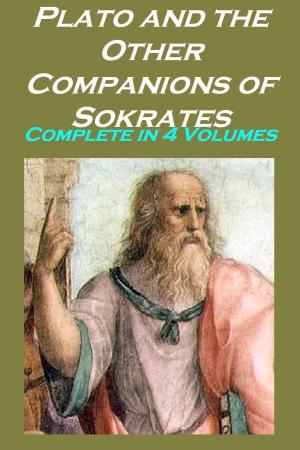Jamieson, Fausset, and Brown's Commentary on the Whole Bible
Nonfiction, Religion & Spirituality, Bible & Bible Studies, New Testament, Commentaries| Author: | Robert Jamieson, A.R. Fausset, David Brown | ISBN: | 1230000255325 |
| Publisher: | Liongate Press | Publication: | July 26, 2014 |
| Imprint: | Language: | English |
| Author: | Robert Jamieson, A.R. Fausset, David Brown |
| ISBN: | 1230000255325 |
| Publisher: | Liongate Press |
| Publication: | July 26, 2014 |
| Imprint: | |
| Language: | English |
The Pentateuch, the name by which the first five books of the Bible are designated, is derived from two Greek words, pente, "five," and teuchos, a "volume," thus signifying the fivefold volume. Originally these books formed one continuous work, as in the Hebrew manuscripts they are still connected in one unbroken roll. At what time they were divided into five portions, each having a separate title, is not known, but it is certain that the distinction dates at or before the time of the Septuagint translation. The names they bear in our English version are borrowed from the Septuagint, and they were applied by those Greek translators as descriptive of the principal subjects--the leading contents of the respective books. In the later Scriptures they are frequently comprehended under the general designation, The Law, The Book of the Law, since, to give a detailed account of the preparations for, and the delivery of, the divine code, with all the civil and sacred institutions that were peculiar to the ancient economy, is the object to which they are exclusively devoted.
The Pentateuch, the name by which the first five books of the Bible are designated, is derived from two Greek words, pente, "five," and teuchos, a "volume," thus signifying the fivefold volume. Originally these books formed one continuous work, as in the Hebrew manuscripts they are still connected in one unbroken roll. At what time they were divided into five portions, each having a separate title, is not known, but it is certain that the distinction dates at or before the time of the Septuagint translation. The names they bear in our English version are borrowed from the Septuagint, and they were applied by those Greek translators as descriptive of the principal subjects--the leading contents of the respective books. In the later Scriptures they are frequently comprehended under the general designation, The Law, The Book of the Law, since, to give a detailed account of the preparations for, and the delivery of, the divine code, with all the civil and sacred institutions that were peculiar to the ancient economy, is the object to which they are exclusively devoted.















